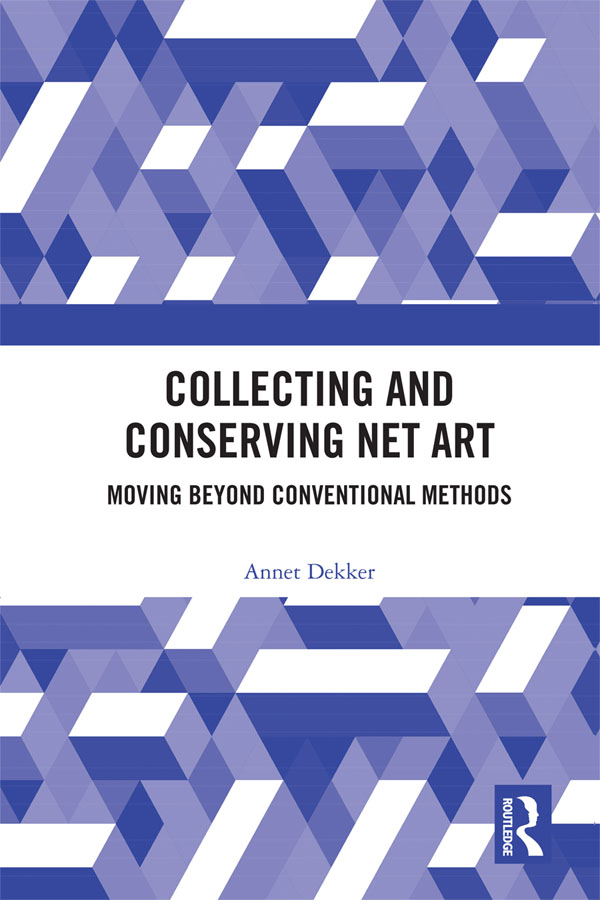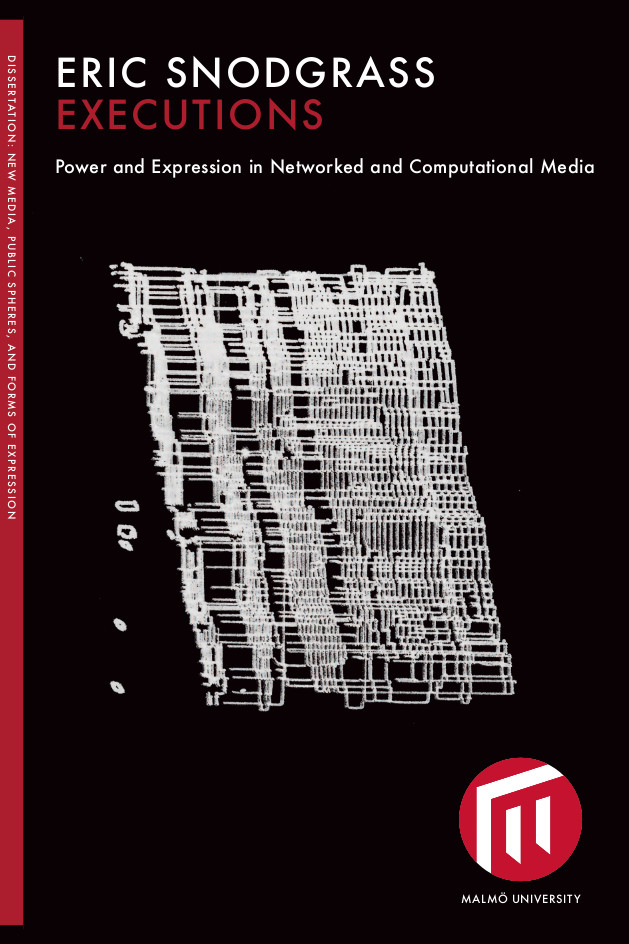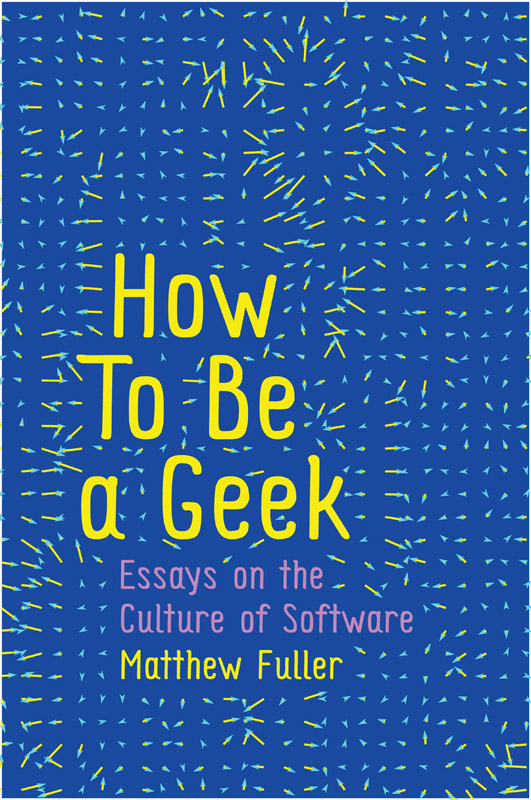Annet Dekker: Collecting and Conserving Net Art: Moving beyond Conventional Methods (2018)
Filed under book | Tags: · archive, archiving, art documentation, conservation, document, internet art, net art, networks, preservation, software, software art, web

“Collecting and Conserving Net Art explores the qualities and characteristics of net art and its influence on conservation practices. By addressing and answering some of the challenges facing net art and providing an exploration of its intersection with conservation, the book casts a new light on net art, conservation, curating and museum studies.
Viewing net art as a process rather than as a fixed object, the book considers how this is influenced by and executed through other systems and users. Arguing that these processes and networks are imbued with ambiguity, the book suggests that this is strategically used to create suspense, obfuscate existing systems and disrupt power structures. The rapid obsolescence of hardware and software, the existence of many net artworks within restricted platforms and the fact that artworks often act as assemblages that change or mutate, make net art a challenging case for conservation. Taking the performative and interpretive roles conservators play into account, the book demonstrates how practitioners can make more informed decisions when responding to, critically analyzing or working with net art, particularly software-based processes.
Collecting and Conserving Net Art is intended for researchers, academics and postgraduate students, especially those engaged in the study of museum studies, conservation and heritage studies, curatorial studies, digital art and art history. The book should also be interesting to professionals who are involved in the conservation and curation of digital arts, performance, media and software.”
Publisher Routledge, 2018
ISBN 9780815382416, 0815382413
x+192 pages
Eric Snodgrass: Executions: Power and Expression in Networked and Computational Media (2017)
Filed under thesis | Tags: · computing, execution, networks, software, software studies

“This book looks at questions of power and expression as they are composed in various ways within networked and computationally-informed situations of the present. Drawing from the term as it is originally invoked in practices of computing, the research puts forward execution as a central conceptual framework for its investigations. In a computer program, a program becomes executable when it is able to execute a set of procedures within a designated set of relations and affordances. Similarly, the concept of execution developed here looks at the ongoing negotiations of various formative relations and affordances (technical, cultural, material, political) in practices of execution, describing certain notable techniques applied towards the task of making things executable.
The examples looked at include several dominant media and technology practices of the present, as well as several alternative practices that point to other possible modes of execution. In doing so, the research highlights certain politically-orientated issues involved in questions of execution, working to further develop specific approaches aimed at describing, questioning and intervening into practices of execution as they occur in the world.”
Doctoral Dissertation in Media and Communication Studies
Publisher Malmö University, Malmö, 2017
New Media, Public Spheres and Forms of Expression series, 11
Creative Commons BY-NC 4.0 International
ISBN 9789171045065
332 pages
via fcr
Matthew Fuller: How To Be a Geek: Essays on the Culture of Software (2017)
Filed under book | Tags: · aesthetics, algorithm, computation, computing, database, information, language, media, media theory, networks, programming, software, software studies, theory

“Computer software and its structures, devices and processes are woven into our everyday life. Their significance is not just technical: the algorithms, programming languages, abstractions and metadata that millions of people rely on every day have far-reaching implications for the way we understand the underlying dynamics of contemporary societies.
In this innovative new book, software studies theorist Matthew Fuller examines how the introduction and expansion of computational systems into areas ranging from urban planning and state surveillance to games and voting systems are transforming our understanding of politics, culture and aesthetics in the twenty-first century. Combining historical insight and a deep understanding of the technology powering modern software systems with a powerful critical perspective, this book opens up new ways of understanding the fundamental infrastructures of contemporary life, economies, entertainment and warfare.
In so doing Fuller shows that everyone must learn ‘how to be a geek’, as the seemingly opaque processes and structures of modern computer and software technology have a significance that no-one can afford to ignore. This powerful and engaging book will be of interest to everyone interested in a critical understanding of the political and cultural ramifications of digital media and computing in the modern world.”
Publisher Polity, 2017
ISBN 9781509517152, 1509517154
x+233 pages

